Applications
Provision of sustainable non-metallic solutions for multiple industries.
Non-metallic solutions that meet your needs in challenging sectors
The advantages of non-metallic materials over metallic ones include corrosion-resistance, increased durability, reduced weight, lower cost, and improved environmental impact. As such, advanced polymeric materials solutions are being increasingly deployed across multiple sectors, from oil and gas to construction, automotive, packaging and other industries.
Energy
Applications in the oil and gas sector include onshore and offshore piping such as gathering lines, salt-water disposal lines, gas-lift lines, water/CO2 floods, water transport, downhole tubulars, tanks, vessels, cooling towers, valves, pumps, as well as secondary offshore structures.
In addition to piping, composite-reinforced, high-pressure gas storage vessels represent one of the fastest-growing markets for advanced composites. The most significant end market is the transportation of compressed natural gas (CNG) products and their storage in forms of transport using CNG and hydrogen instead of gasoline and diesel.
Applications
Oil and gas
(CO2) CCUS
Renewables
Power supply and storage
Hydrogen
Mining
Slurries transported in mining often face the same challenges presented by the high pressures, temperatures, and corrosion/erosion of hydrocarbon transport. The low abrasion and no pressure derating of the pipe allows for a high flow at optimal diameters.
Applications
Water and slurry transport
Dust suppression
Mine/pit dewatering
Utilities
The transportation of produced or fresh water presents erosion and corrosion issues that steel pipes cannot address without extensive maintenance and treatment. Novel’s HDPE-lined piping with a reinforced aramid fiber reinforcement is ideal for transporting fresh water, produced water, and for disposal lines, including energy flowlines.
Applications
Water transport
Industrial gas transport
Chemical transport
Automotive
Non-metallic composite hydrogen storage tanks are essential components in hydrogen fuel vehicles. Such
hydrogen-powered vehicles have zero emissions and provide similar performance to conventional engine vehicles. With carbon-fiber reinforced polymers, it is possible to store hydrogen fuel at very high pressures (up to 700 bar), which allows for a driving range similar to gasoline-fueled vehicles. Novel will develop and commercialize type IV composite tanks that are made of a polymer liner and are fully wrapped with a fiber resin composite; thus ensuring the weight of the tank to be as low as possible.
Applications
Hydrogen pressure vessels
Car frame/body
Engine powertrain and transmission
Driveshafts
Building and construction
Fiber reinforcement in composite building material can be used to enhance impact resistance, tensile strength, energy absorption, toughness, ductility, and fatigue strength. Such construction materials include composite rebars, polymer concrete, structural components, flooring, building accessories, and composite cladding.
Applications
Construction materials










